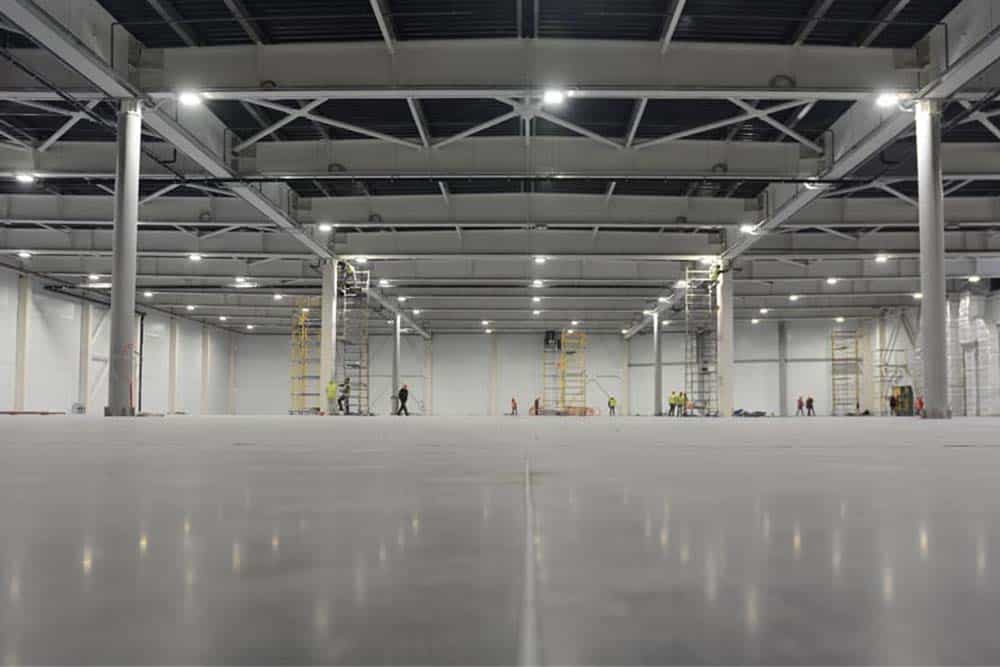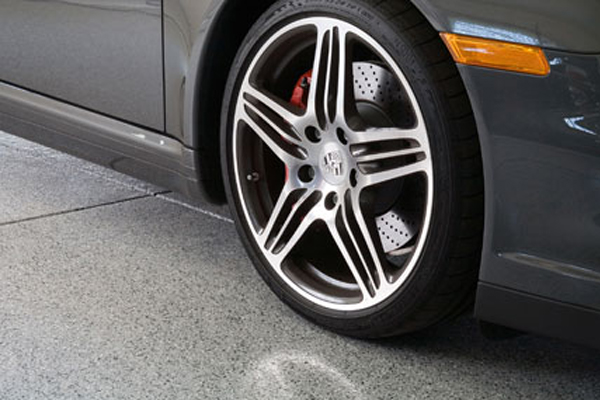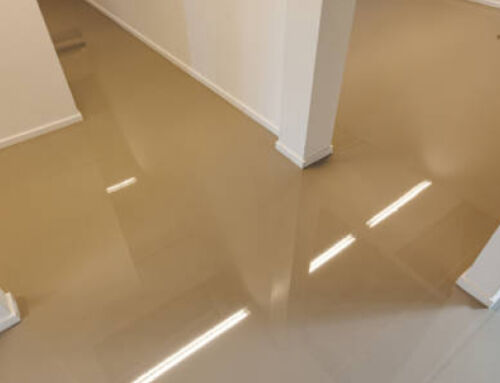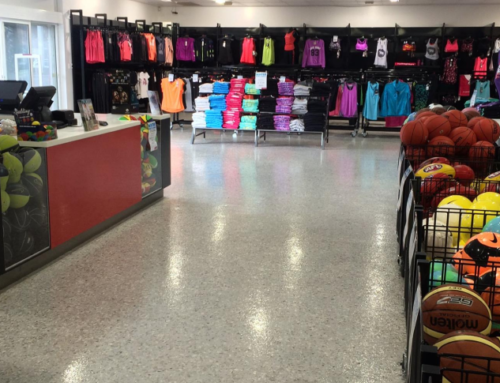Epoxy flooring is a popular choice as it offers an all-in-one solution for industrial, commercial, and, nowadays, even residential projects. Not only is it durable, but it’s also a lot easier on the eye than just a plain slab of concrete.
It’s also extremely versatile. Depending on your branding or personal tastes, you can opt for a beautiful metallic floor that will turn an unnoticeable feature into a statement piece. From ripples to rivers, there’s a range of colors and designer styles from which you can choose.
But what exactly is epoxy resin? How is it used in flooring projects specifically, and does it call for a lot of maintenance? Here’s what goes into this resin and the benefits that you can look forward to.
What is epoxy resin?
Epoxy resin is a term that refers to a mixture that produces a chemical reaction and develops a plastic-like substance with any number of characteristics. If this sounds a bit vague, it’s because the science itself is rather involved and can vary a lot depending on what liquids, additives, or hardeners are used in the blend. Since these are made up of a mix with different ratios, you can also hear the term composite used.
When the chemistry is just right, the materials harden into a new substance that is coveted for specific properties. Most resins are very hard and durable. They can also be poured in a liquid form to take the shape of any container or evenly across a floor before drying and curing. The result is a solid that you can control the appearance and thickness of, which can be quite useful depending on your project.
What is this resin used for?
If you regularly watch DIY videos on YouTube, you’ve probably heard the term being used a couple of times already. From arts and crafts to professional construction projects, this resin can be used for various purposes and its commonly used in:
- Jewelry
- Decorative objects
- Furniture
- Garage floors
- Benchtop sealer
- Wooden surface sealer
What is this resin made of?
As mentioned, this resin is commonly used to seal surfaces such as floors. Without getting too scientific, any epoxy has two main parts, namely a curing agent (aka a hardener) and a resin. When these parts are combined, it forms a hard, plastic coating.
When it’s used for flooring specifically, multiple layers of this resin (its depth should be at least two millimeters) get placed over an existing concrete floor surface. The resin dries (or cures) to offer long-lasting protection. This way, the floor becomes less vulnerable to the elements as the coating isn’t porous like concrete, making it resistant to many chemicals. Because of its strength, it also offers impressive protection against scratches and impact damage.
What other benefits does this resin offer?
It’s not just for its durability that it’s becoming one of the most popular flooring solutions in Australia. Here are some of the other main benefits:
Affordability
If the floor’s current condition calls for little to no preparation, it can be a very cost-effective solution. You can expect to pay about as little as $30 per square meter (this includes the installation and material) in Perth. If you want to opt for a designer touch, you’ll likely have to pay about $15 extra compared to a standard, uniform design.
Check out our complete article: How Much Does Epoxy Floor Cost?
Easy to maintain
Not only can your initial costs be relatively low depending on the level of preparation required, but, compared to other flooring types, it also requires little maintenance. With minimal maintenance, it can last for more than 30 years. The only thing you need to do is clean it with a soft cloth from time to time. If there’s a visible mark, it can be removed by applying a little bit of acetone.
With regards to repair, it usually is as straightforward as applying another coat. Compared to a tile floor where tiles will need to be removed and replaced if a few get chipped, repairing a floor is a lot less messy, and you also don’t run the risk of damaging the concrete surface underneath.
Stain resistant
This flooring is resistant to water, chemicals, oils, and heat. This makes it a firm favorite of commercial and industrial settings. Depending on the type of flooring you ultimately select, you can ensure that your floors are protected against the type of work that you mostly do for less compared to other types of flooring solutions.
Appearance
When applied by a professional floor installer, this floor boasts a smooth, shiny appearance. What’s more, they’re available in a wide range of finishes, colors and styles. From a slight tint to colored quartz chips, there are many options available helping you to create a unique look that matches your current style or branding.
This brings us to our next point…
What are the most common types of this type of flooring?
Quartz-filled
For a more decorative touch, homeowners often opt for quartz-filled floors. In short, it combines epoxy resin with various colored quartz grains to add an attractive shine.
Flake
This is a popular alternative to quartz-filled material. Colored flake materials get added to this resin to improve its overall appearance. The end result is a slightly rough surface. The flakes can be made of different materials (although usually vinyl) and come in different sizes and colours.
Self-leveling floor
Self-leveling floor is ideal for industrial and commercial projects. As it self-levels, it’s more straightforward to apply. If you have concrete floors with any cracks, this is a good choice.
Electrostatic dissipating
Environments like healthcare facilities and labs that require electrostatic dissipation often turn to this type of flooring. It’s specially formulated to prevent the build-up of electrical charges.
Mortar
This type of floor is ideal for areas that are subjected to high impact like a garage, commercial kitchen, manufacturing plant, or warehouse. It’s the strongest form of this type of flooring and can also be used in crack repair.
The answer to (most of) your flooring needs
While this type of flooring offers great versatility, it isn’t suitable for every environment. For example, it’s not recommended that you use it for areas that are in the sun. The material is very sensitive to UV rays, and the color can fade quickly or likely turn yellow. In short, the chemical composition is just not as stable when it’s exposed to direct sunlight.
However, an experienced installer will know its chemical makeup and when it will be the best material for your flooring needs. If you’re eager to use epoxy resin for your next flooring project, reach out to the team at Hawk CFC and let’s chat about your project.
We offer free consultations. So, if you would like to find out if it’s the right material for your epoxy flooring, be sure to request a consultation today.




